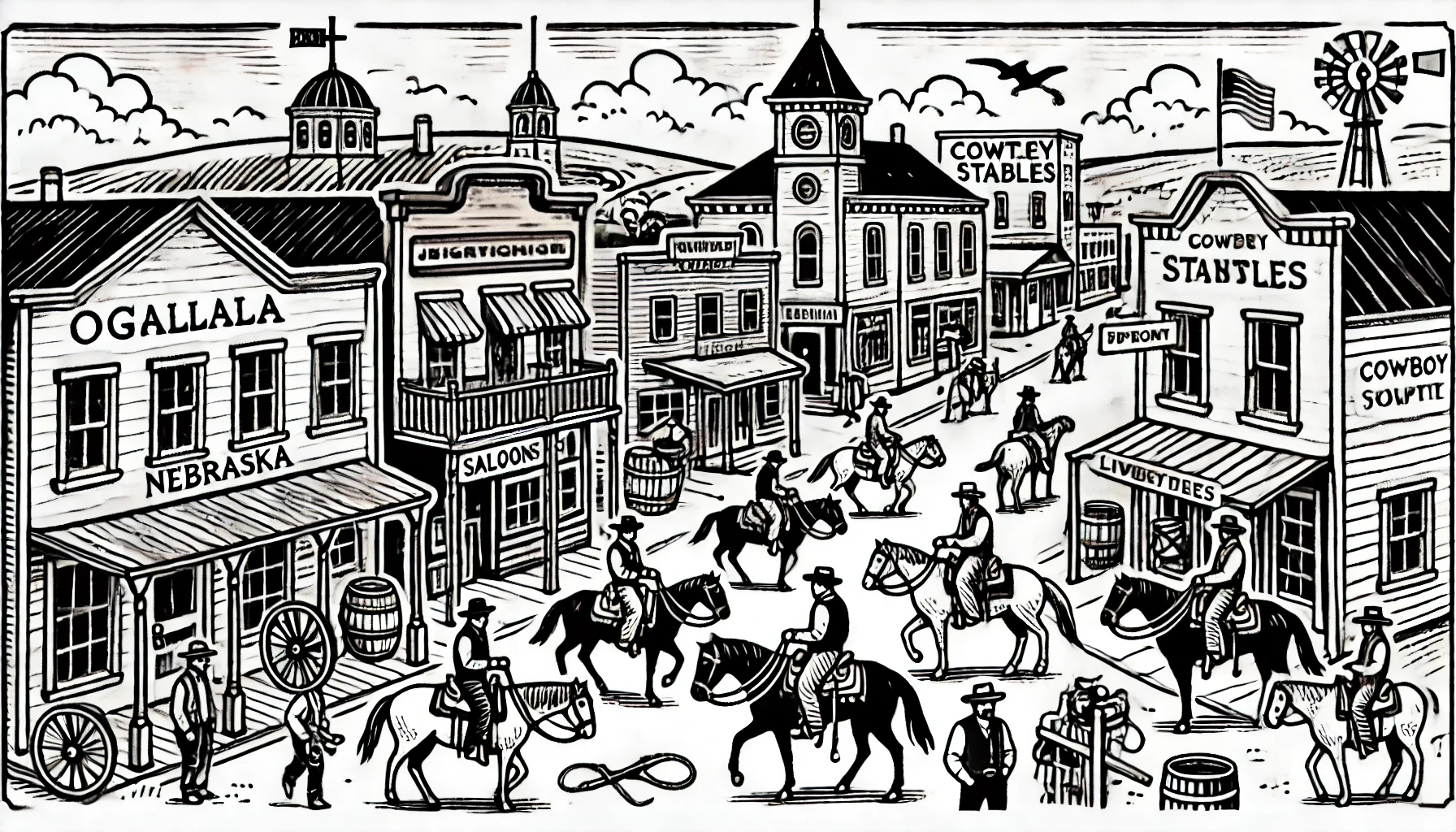Heartland Food Co Ops

Traveling through Nebraska, a state known for its vast open spaces, ranches, and agricultural fields, offers an opportunity to explore the rich tapestry of its food culture. Amidst the rolling hills and small towns of the Great Plains, one may stumble upon a network of heartland food co-ops. At its core, a food co-op is a member-owned, member-controlled business that operates for the mutual benefit of its patrons, providing a unique and vital link between consumers and local food producers.
The heartland region, characterized by states such as Nebraska, Kansas, Iowa, and parts of neighboring states, is home to a growing number of food co-ops. These co-ops embody the entrepreneurial spirit of the Great Plains, fostering a culture of collaboration, social responsibility, and community-driven initiatives. Omaha's own The Natural Grocery Company, for example, has been in operation since 1988 and serves as a prime example of a thriving member-owned co-op that has served the metropolitan area for over three decades.
A typical heartland food co-op functions as a shared platform for farmers, producers, and consumers to exchange goods, resources, and knowledge. Members often pool their resources, knowledge, and expertise to run the business, supporting local agricultural initiatives, promoting organic farming methods, and emphasizing ecological sustainability. Furthermore, co-ops draw upon existing networks of growers, suppliers, and artisans to curate their shelves with an array of artisanal and regionally-specific food items, keeping in tune with the local palate and distinct flavor profiles of the heartland region. Lincoln's local co-op, Open Harvest Cooperative Grocery, for instance, upholds a high standard for freshness and organically produced stock, drawing in food-conscious consumers from across the state.
One key feature that distinguishes heartland food co-ops from traditional supermarkets is their emphasis on supporting local farmers, many of whom rely on these co-ops to establish market access and negotiate fair prices for their produce. In Nebraska, partnerships like the one between local growers and the co-op at the historic Hayday Coffee in Lincoln have fostered lasting relationships between rural agricultural communities and urban co-ops, giving smaller local producers an opportunity to flourish and tap into a more extensive market network.
A comprehensive network of food co-ops also serves as a knowledge-sharing hub, helping link consumers to experiential education in the culinary arts. These gatherings reflect the resourcefulness, solidarity, and agricultural traditions characteristic of the Great Plains. The growing popularity of food education has spilled into public awareness initiatives and workshops that empower local residents to take an active role in their regional food infrastructure. During a Food System Tour in collaboration with Community Harvest, held in 2017 at Alliance, residents of Box Butte County familiarized themselves with the best practices of fruit production, observing direct sales at local vendor sites and joining together to share an evening meal at a nearby ranch.
Many co-ops emphasize their pivotal role in improving urban-rural socioeconomic ties, nurturing social cohesion in multicultural communities, and tackling urban food insecurity. Some successful co-ops incorporate social welfare programs that assist those in need of food security, like scholarships for those in service trades, elderly subsidies, and even government-assisted services. Many regional organizations often conduct regular food audits to continually improve nutritional diversity and nutritional offerings for long-term consumer betterment.
Collecting from a region of prime soil, farmers in the co-op foster long-term environmental resilience. Initiatives conducted on Nebraska plant cover farms are carried out similarly nationwide, with emphasis put on harvesting without eliminating nutrients from local topsoil. Offering real-world sustainable adaptations sets a model for sustainable agricultural improvement of lands within the region and its periphery.
Tackling co-op marketing, local advocates promote healthy buying and regular growth with regional co-op developments, aiming to merge consumers back into an infrastructure increasingly involved about community resources of contemporary family management.
The heartland region, characterized by states such as Nebraska, Kansas, Iowa, and parts of neighboring states, is home to a growing number of food co-ops. These co-ops embody the entrepreneurial spirit of the Great Plains, fostering a culture of collaboration, social responsibility, and community-driven initiatives. Omaha's own The Natural Grocery Company, for example, has been in operation since 1988 and serves as a prime example of a thriving member-owned co-op that has served the metropolitan area for over three decades.
A typical heartland food co-op functions as a shared platform for farmers, producers, and consumers to exchange goods, resources, and knowledge. Members often pool their resources, knowledge, and expertise to run the business, supporting local agricultural initiatives, promoting organic farming methods, and emphasizing ecological sustainability. Furthermore, co-ops draw upon existing networks of growers, suppliers, and artisans to curate their shelves with an array of artisanal and regionally-specific food items, keeping in tune with the local palate and distinct flavor profiles of the heartland region. Lincoln's local co-op, Open Harvest Cooperative Grocery, for instance, upholds a high standard for freshness and organically produced stock, drawing in food-conscious consumers from across the state.
One key feature that distinguishes heartland food co-ops from traditional supermarkets is their emphasis on supporting local farmers, many of whom rely on these co-ops to establish market access and negotiate fair prices for their produce. In Nebraska, partnerships like the one between local growers and the co-op at the historic Hayday Coffee in Lincoln have fostered lasting relationships between rural agricultural communities and urban co-ops, giving smaller local producers an opportunity to flourish and tap into a more extensive market network.
A comprehensive network of food co-ops also serves as a knowledge-sharing hub, helping link consumers to experiential education in the culinary arts. These gatherings reflect the resourcefulness, solidarity, and agricultural traditions characteristic of the Great Plains. The growing popularity of food education has spilled into public awareness initiatives and workshops that empower local residents to take an active role in their regional food infrastructure. During a Food System Tour in collaboration with Community Harvest, held in 2017 at Alliance, residents of Box Butte County familiarized themselves with the best practices of fruit production, observing direct sales at local vendor sites and joining together to share an evening meal at a nearby ranch.
Many co-ops emphasize their pivotal role in improving urban-rural socioeconomic ties, nurturing social cohesion in multicultural communities, and tackling urban food insecurity. Some successful co-ops incorporate social welfare programs that assist those in need of food security, like scholarships for those in service trades, elderly subsidies, and even government-assisted services. Many regional organizations often conduct regular food audits to continually improve nutritional diversity and nutritional offerings for long-term consumer betterment.
Collecting from a region of prime soil, farmers in the co-op foster long-term environmental resilience. Initiatives conducted on Nebraska plant cover farms are carried out similarly nationwide, with emphasis put on harvesting without eliminating nutrients from local topsoil. Offering real-world sustainable adaptations sets a model for sustainable agricultural improvement of lands within the region and its periphery.
Tackling co-op marketing, local advocates promote healthy buying and regular growth with regional co-op developments, aiming to merge consumers back into an infrastructure increasingly involved about community resources of contemporary family management.
